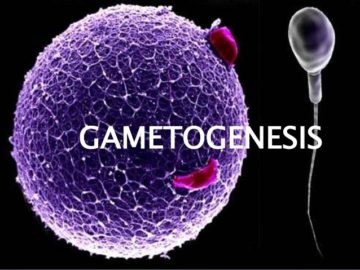Rob Stein on NPR:
 Researchers are inching closer to mass-producing eggs and sperm in the lab from ordinary human cells. The technique could provide new ways to treat infertility but also open a Pandora’s box.
Researchers are inching closer to mass-producing eggs and sperm in the lab from ordinary human cells. The technique could provide new ways to treat infertility but also open a Pandora’s box.
ROB STEIN, BYLINE: It’s a Wednesday morning at the National Academies of Sciences, Engineering, and Medicine in downtown Washington, D.C.
ELI ADASHI: Welcome, everybody, to the National Academy of Medicine workshop.
STEIN: Dr. Eli Adashi from Brown University opens the Academy’s first gathering to explore the latest scientific developments and complicated social implications of something known as in vitro gametogenesis, or IVG, which involves making human eggs and sperm in the laboratory from any cell in a person’s body.
ADASHI: It is on the precipice of materialization, and IVF will probably never be the same.
STEIN: Japanese scientists describe how they’ve already done this in mice, coaxing cells from the tails of adult mice to become what’s known as induced pluripotent stem cells, or IPS cells, and then coaxing those cells to become mouse sperm and eggs. They’ve even used those sperm and eggs to make embryos and implanted the embryos into the wombs of female mice, which gave birth to apparently healthy mouse pups. Mitinori Saitou joins the workshop via Zoom from Kyoto University.
More here.
